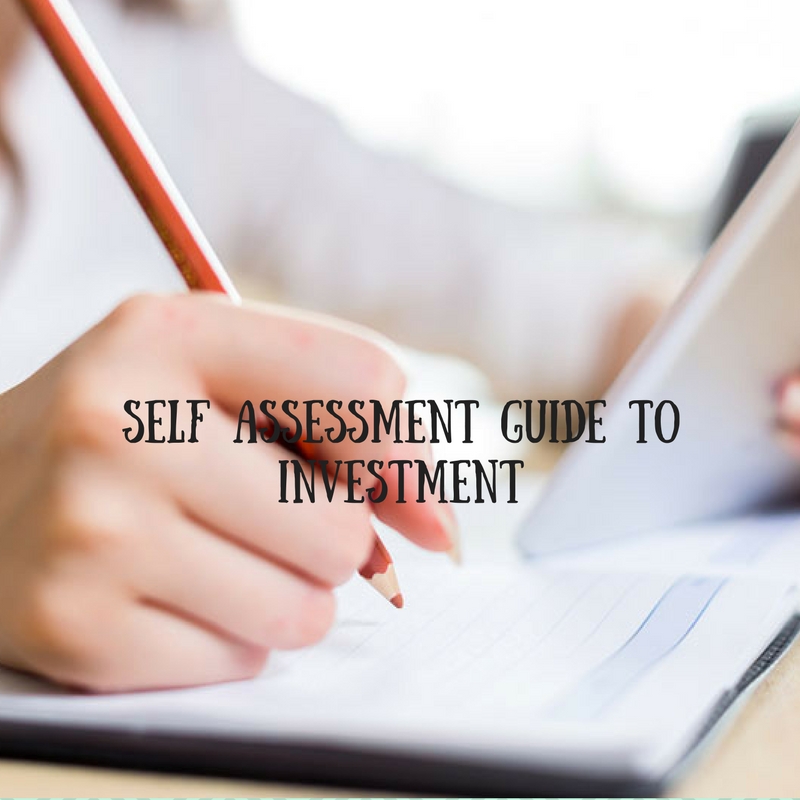Self Assessment Guide to Investment
- 6 March 2017 | 1484 Views | By Mint2Save

As we progress in the era where international and innovative financial investment options take a higher gear, retail investors keep on getting newer options to boost their savings. What was limited to only stocks and real estate at one time, is now expanded to mutual funds of various categories, Gold bonds, commodities, foreign currency trades and several other investments.
With this advent of revolutionary financial products, the dependency on sensible financial advising has also increased. Unfortunately, most of us have simply neglected the idea of having dedicated financial advising, but rather, have focussed on experts doing regular TV shows and newspaper columns.
Is it enough? Spending a good part of your hard earned income and savings into some that has been recommended to the general public at random?
Obviously, a need to explore one’s own investing capability cannot be more real until or unless he does a thorough self assessment.
In this article, we would explore and device a self help financial advisory assessment model, which would help one filter his investment preferences and choose best investment options, which not only minimize risk, but also make one immune to financial burdens.
- Relationship Status: Yes, this is one of the most critical factors when investment options are considered. There can be the following combinations here:
(a) Single: In this case, you are a sole earner-sole spender. You have a better control over your income and expenses. You can venture into riskier investments like equity and equity based mutual funds.
(b) Married and spouse is also earner: A case more common to today’s generation. Two earners, mean a better financial situation. You can explore a lot of investment options, keeping in mind
(c) Married and the spouse is a homemaker: In the case, where there is sole earner, the need for a good insurance becomes more prior to investment. Investment options would be slightly safer ones such as debt or balanced mutual funds, recurring deposits, fixed income plans etc.
2. Family Planning: If you look at any investment based product’s marketing campaign, family planning has rarely seen itself being left out. If you are married and plan to start a family sooner, a sheath of insurance and long term savings with less risk is what your mind would be thinking.
3. Family Wealth: If you are going to inherit a good fortune from your parents/forefathers, there can be dramatic changes in your financial situation, which would obviously affect your investment strategies too. If you happen to inherit wealth, you attain liberty to thoroughly check all investment options, that include real estate, gold, equity and several others.
If you do not inherit any money, but instead have old-ailing parents to take care of, you can shed the idea of investing by the idea of taking care of your family via various life and health insurance policies. Post that, you can choose some investment with, preferably, a longer horizon.
4. Profession: The main focus here is the stability of your job. If you work for the government or a fairly reputed company, you not only achieve a regular income source, but also fair increments on a timely basis which aid in dealing with inflation.
5. Investment Motive: One of the most important factors is to know the motive of investment. If you are aiming for shorter term goals to medium term goals like buying a car or a small holiday, a different investment menu awaits you. On the other hand, if you are focused on long term goals like retirement, the investment options change altogether.
You might have noticed that all these factors mentioned above have a combined effect on our lives. Many of us are single, with newer unstable jobs and hardly an investment motive (other than road trips). A lot among us could be married, where both the partners are working and have checked out most of their financial needs.
Once you have a thorough assessment of all the above mentioned points, you can very well decide on what sort of investment options are best suited to you.
From risk to duration, the above mentioned factors would filter quite a number of confusions for you.









